Welcome to Isfahan, Iran, where history, architecture, and art seamlessly blend together to create a traveler’s paradise. Nestled in the heart of the country, Isfahan exudes grandeur and sophistication with its incredible craftsmen and unique, mouthwatering dishes.
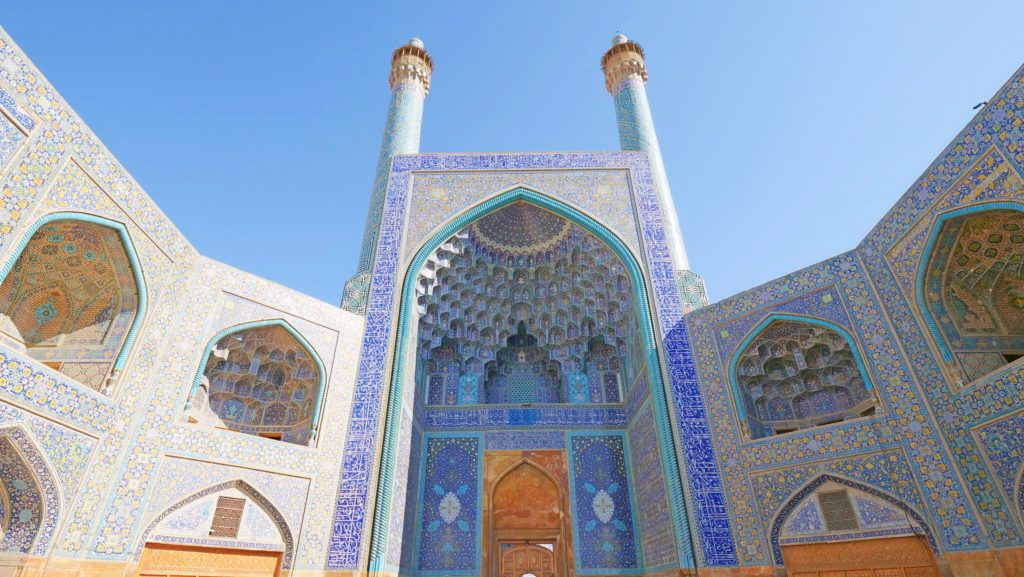
Between its stunning UNESCO World Heritage sites like Naqsh-e Jahan Square and the breathtaking Imam Mosque, Isfahan will transport you back in time to the golden era of the Persian Empire. As you stroll through its winding streets, you’ll discover intricate tilework, bustling bazaars, and majestic bridges that have become the hallmark of this enchanting city.
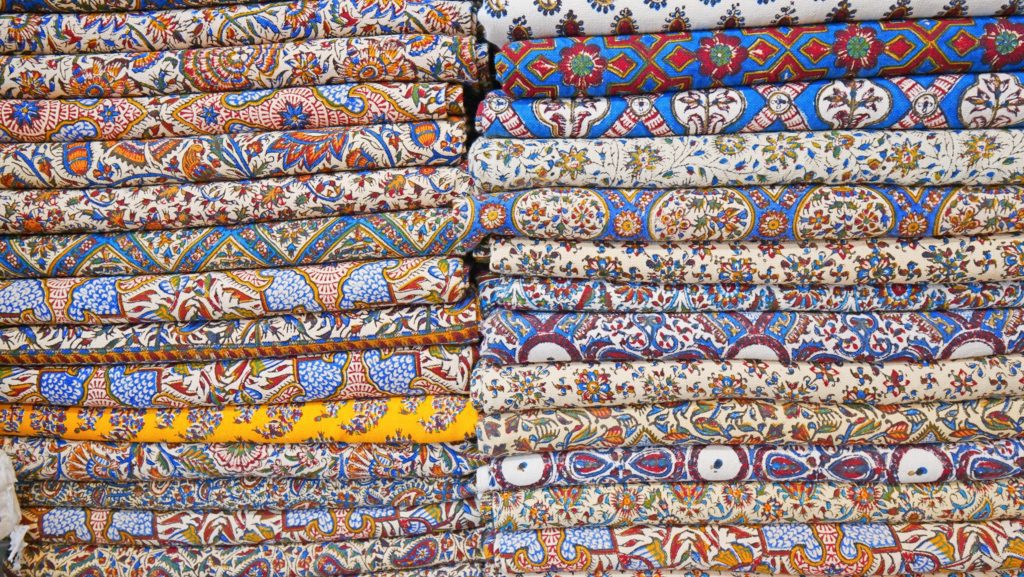
But Isfahan is more than just a feast for the eyes. It’s a city that tantalizes all the senses. Isfahani food is some of the most famous in all of Iran, and for good reason. The city’s cuisine even won the heart of the original travel foodie, Anthony Bourdain!
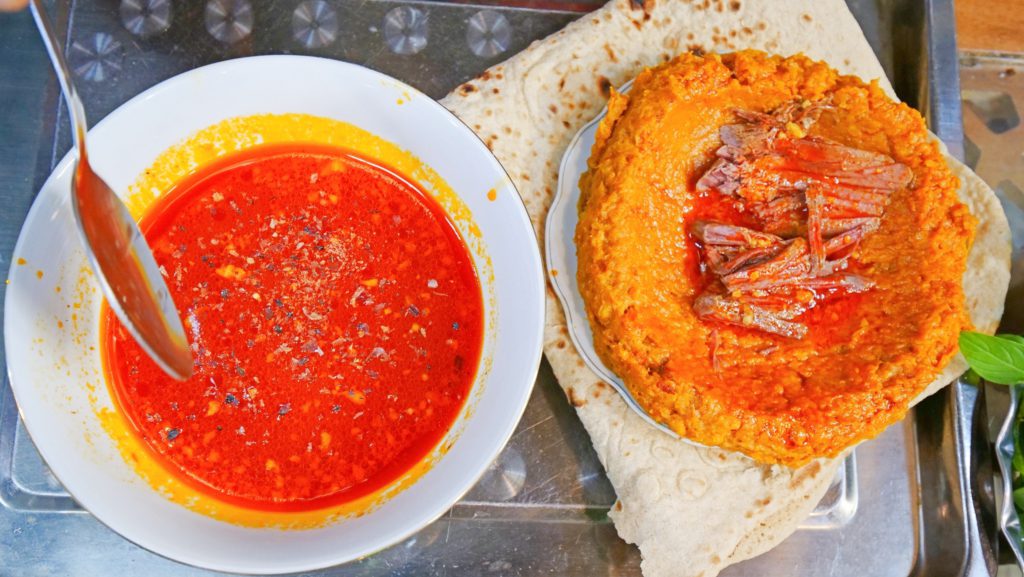
I explored the city with Mr. Taster and my friends at Kootook Travel in the summer of 2022. It’s one of my favorite Persian cities, where history meets modernity, and where the warmth and hospitality of the Iranian people leave an indelible mark on your heart. Let’s explore the wonders of Isfahan, Iran!
No visit to Isfahan, Iran is complete without visiting its Grand Mosque, also known as the Friday Mosque. This magnificent hall of worship dates back to the early 17th century and features some of the largest domes in the world. The vibrant blues and yellows of the mosque’s design reminded me of the architecture I saw in Bukhara and Samarkand in Uzbekistan.
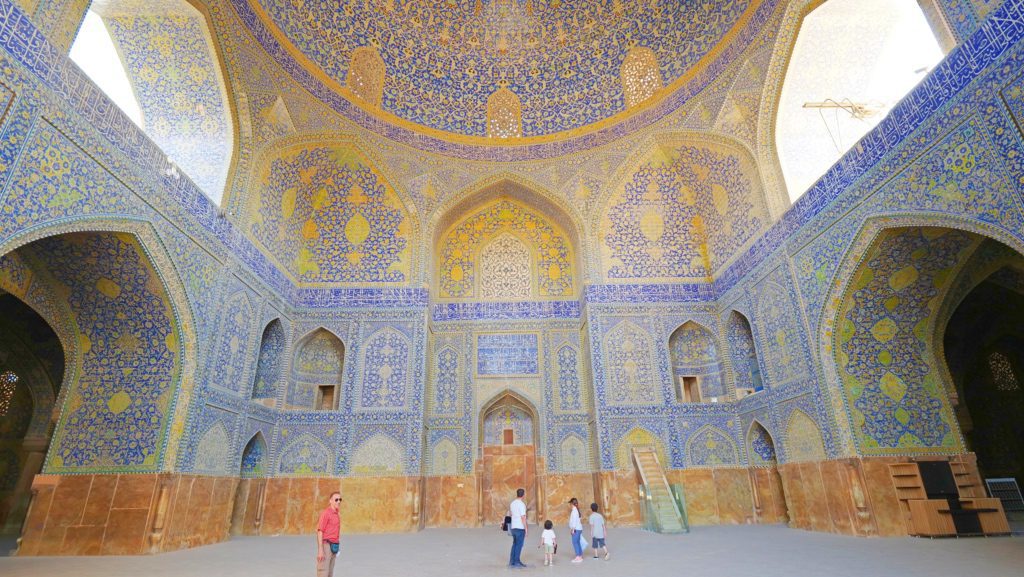
The mosque has four entrances known as knaves, with this architectural style originating in the 11th century. Interestingly, only one of these entrances is adorned with minarets, while the other three are not. The knaves serve as gathering spaces for people, and their combination of columns, colors, and architectural details is absolutely breathtaking!
Visiting local bazaars and markets is always one of the best ways to get a feel for a new destination. During my visit to the Grand Bazaar in Isfahan, Iran, I was immediately captivated by the gorgeous array of Persian carpets, pillow covers, and table runners on sale. You’ll also find shopkeepers selling copper cups, coffee and shisha accessories, decorative copper plates, jewelry, and jewelry boxes!
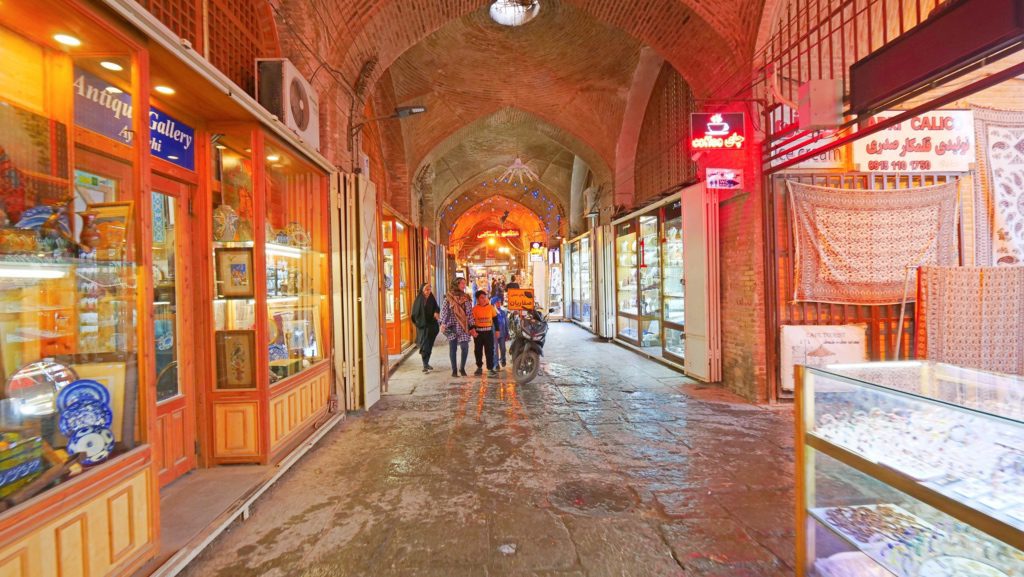
Elsewhere, you’ll find vendors selling spices. At one shop, we found a shopkeeper who has a huge vase full of saffron! Another shop showcased a talented craftsman whose jewelry boxes had been featured in a Los Angeles museum.
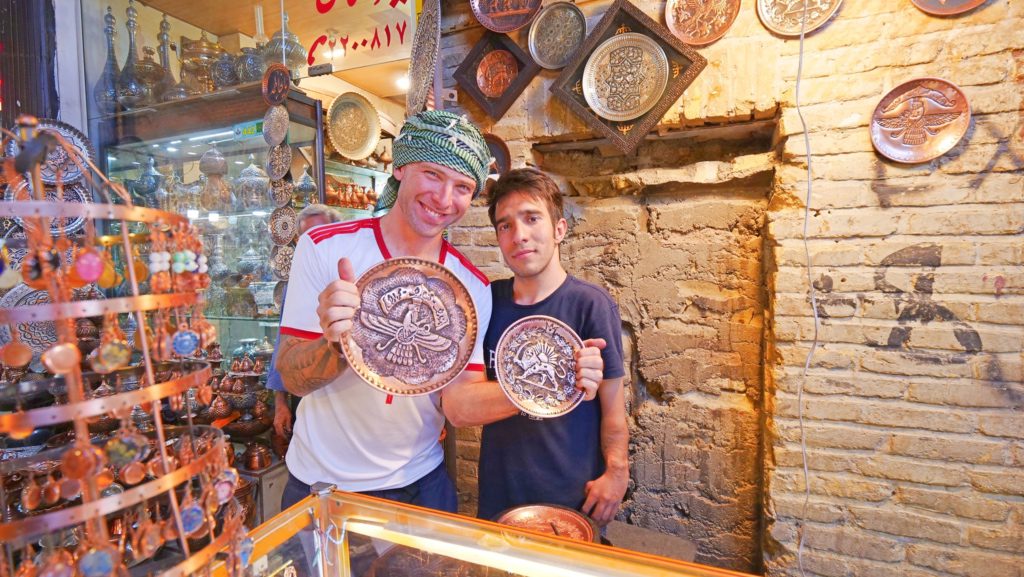
Everywhere I went, the people were kind and friendly. More than one vendor, including the jeweler at Tooba Gem Gallery, gifted me items from their shop just for visiting and promoting it. Their warmth and generosity touched my heart and made this one of my favorite Iranian travel adventures.
Inside the Grand Bazaar, you’ll find Azadegan Teahouse, one of the most popular restaurants in Isfahan, Iran. Popularized by its appearance on Anthony Bourdain: Parts Unknown, this narrow café’s walls are adorned with hundreds of paintings and antiques. It’s said this restaurant was Bourdain’s favorite café in all of Iran!
I started with a minty yogurt drink called doogh and a crispy, syrupy sweet called gooshfil, reminiscent of jalebi. I loved the combination of sweetness and sourness. Then, we continued with a variety of dishes including roasted eggplant, lavash, pickled vegetables, curd, spinach, lemon, and crispy onions.
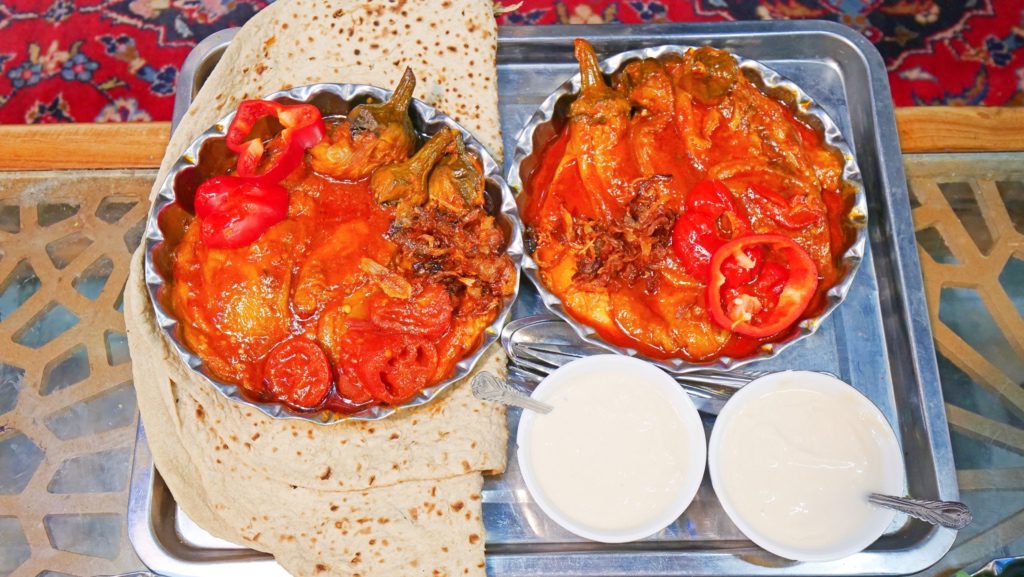
The creamy curd perfectly complemented the eggplant, which I ate wrapped inside the lavash flatbread. Finally, we ended with some saffron tea!
During my time in Isfahan, Iran, I had the opportunity to see how they make a traditional sweet called gaz. The family-owned Pooya Gaz factory has been in operation since 1938 and uses egg whites, sugar, rose water, pistachios, and almonds in their production.
Inside the factory, I observed the process of making gaz, from whipping the egg whites and adding the rose water, to adding flavors and nuts, to the baking and cutting. They produce different flavors, including plain and watermelon, and add pistachios, almonds, and other nuts.
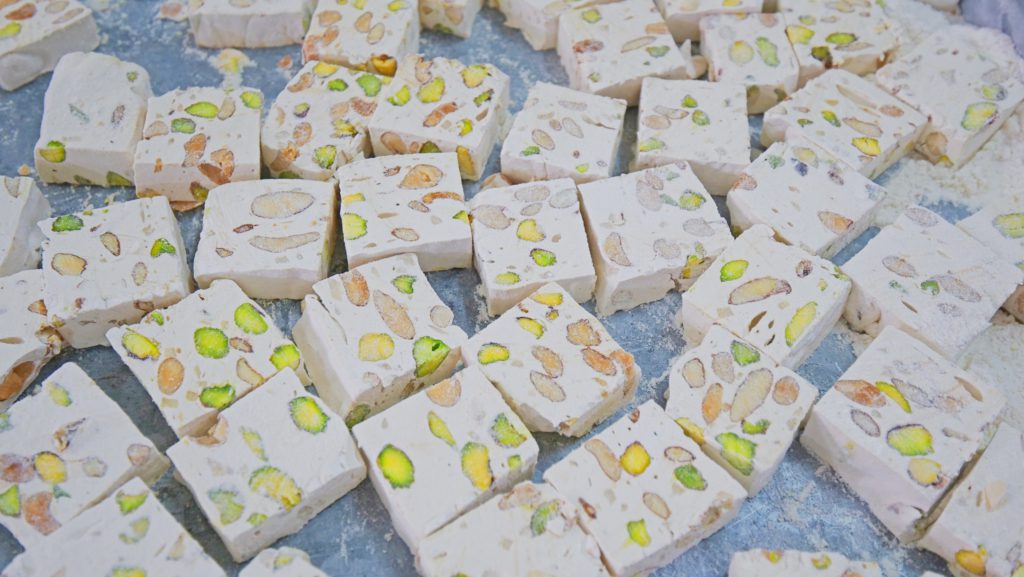
In addition to gaz, I also tried sohan, a brittle snack I had previously tasted in Qom. The factory workers sorted the gaz pieces, coated them in powdered sugar, and packaged them for distribution. The staff was incredibly kind; they even gifted me a beautiful box of gaz as I left!
You’ve probably heard of the Indian dish called biryani, right? But what about Persian biryani? You can try this drool-inducing Isfahan, Iran favorite at Haj Mahmoud Beryani. The dish is essentially a fried lamb patty containing lamb, mutton, sheep lungs, tail fat, cinnamon, onions, almonds, walnuts, pistachio, saffron, parsley, turmeric, mint, salt, and pepper.
It comes with fresh sangak bread, and is a flavor bomb in your mouth. The patty has a crispy texture and has a rich, earthy flavor from the fat, organ meat, and nuts. It’s incredibly meaty and fatty, and adding lemon juice, fresh onions, tomatoes, and basil made it even better.
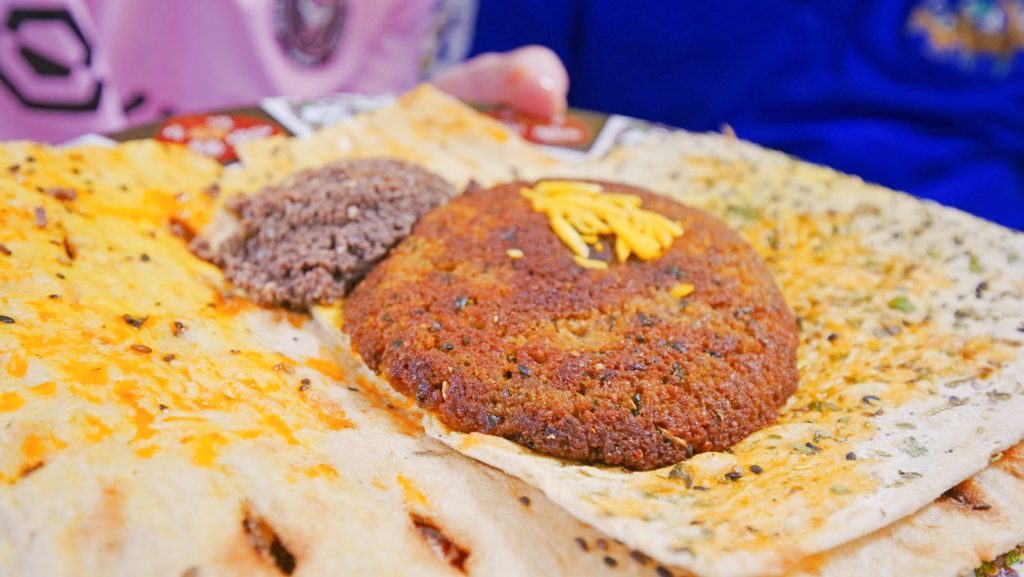
It’s easily one of my favorite dishes in Iran and is a must-try for any foodie visiting the country! Just be sure to visit Haj Mamoud Beryani early—they usually sell out by 2 p.m.!
Another Isfahani culinary favorite I highly suggest you try in Isfahan, Iran is khoresh mast. This unique dessert actually contains meat, so it’s not for vegans and vegetarians! The dessert combines yogurt, rose water, sugar, egg yolks, turmeric, saffron, and crushed lamb neck meat.
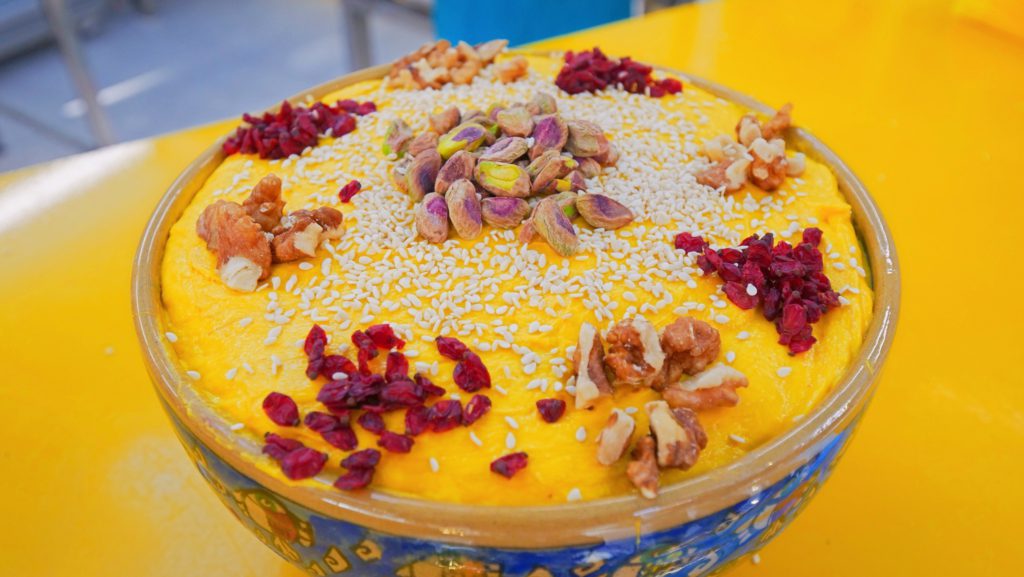
The process involves mixing minced lamb with yogurt until it becomes a thick paste, then adding saffron and honey to another batch of yogurt before combining the two. It sounds like an odd concoction on paper, but I promise, it’s fresh, flavorful, and incredibly tasty! Give it a try and let me know what you think!
Iran is world-famous for producing stunning, ornate carpets. One of the best places in Isfahan, Iran to see them is Carpet LoverClub, a local Persian carpet workshop, where you can buy and admire these extravagant creations. The workshop stocks carpets in various sizes, colors, and designs, including a replica of a vibrant 17th-century carpet from the Metropolitan Museum. which caught my attention with its vibrant colors. The workshop also specializes in reproducing and recoloring carpets.
At the workshop, you’ll also learn about the dyes they use, including indigo and pomegranate skin. Some of the carpets in their showroom take years to finish. Others are over 100 years old, and there are even some that have precious stones woven into them.
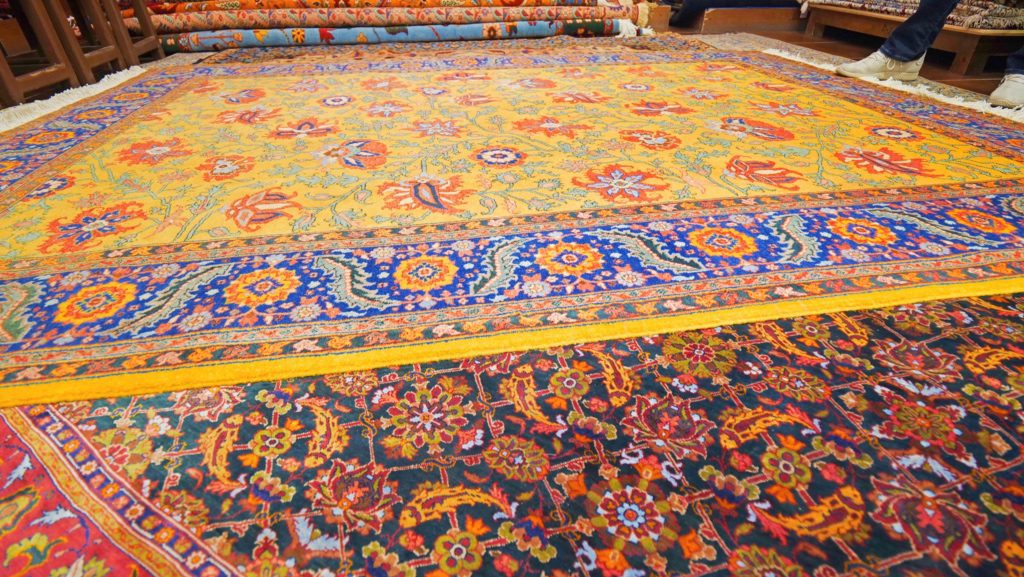
Unsurprisingly, due to the time and craftmanship that goes into them, they can be pricey. Some of their most extravagant creations have sold for as high as $3.5 million USD, but they also offer smaller ones for as little as $200 USD.
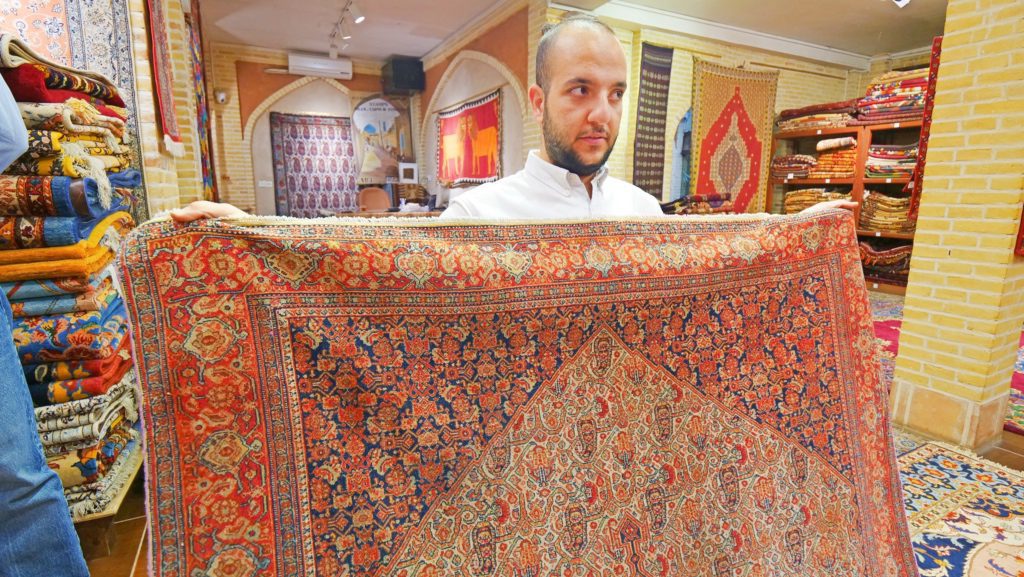
Be sure to pay them a visit and support if you can. Even a smaller, less expensive carpet is a priceless keepsake and a beautiful piece of Iran’s culture!
Many countries around the world have their own version of porridge, and Iran is no different. This porridge is milky and creamy, and comes with a honey-like syrup made from figs, dates, and grapes.
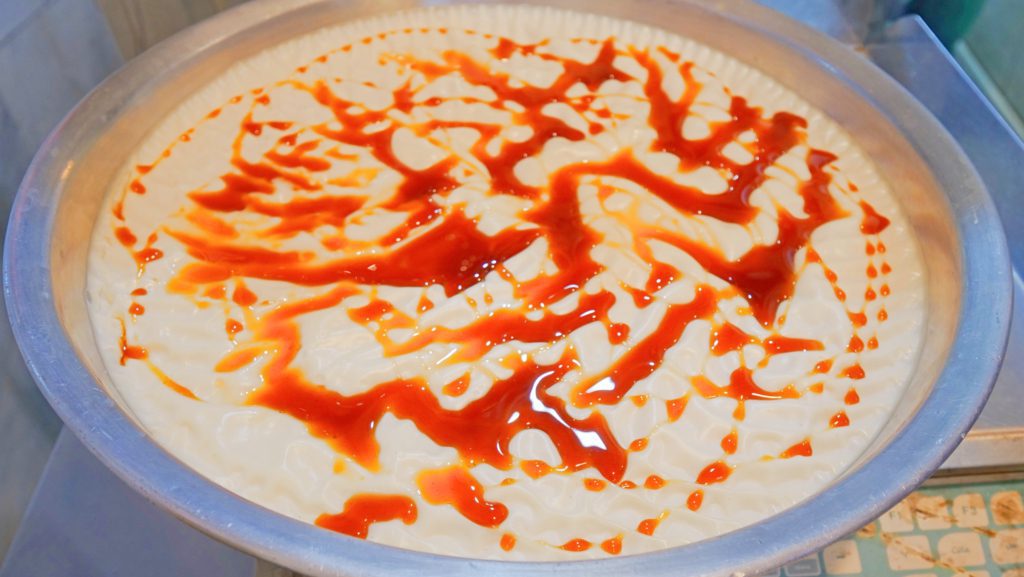
The porridge is cold, rich, and refreshing, and a great snack to have on hot days. I enjoyed it quite a bit! The owner of the shop I visited also made some bamieh, which are sweet fritters soaked in saffron and rose water syrup. He fed some of them to us while we waited for the porridge. If you have a sweet tooth, the porridge and bamieh is an unbeatable combination!
Isfahan, Iran is a glorious city with warm, kind-hearted people, a thriving and fascinating culture, and some of the best food in the country. I mean it when I say this city left a mark on my heart, and I wish I could have spent more time there than I did.
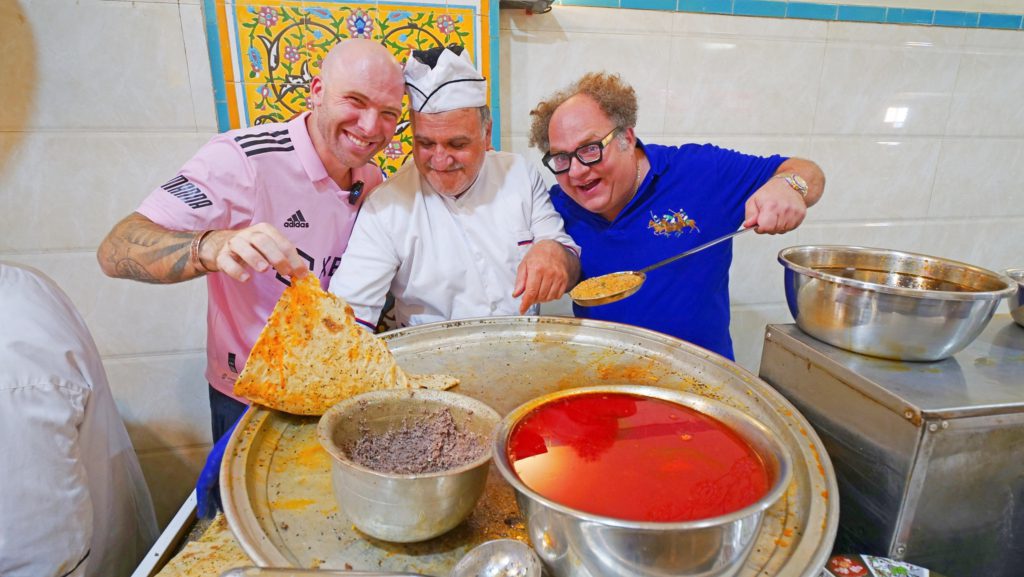
Whether your passion lies in gastronomy, history, culture, or architecture, this city has something special waiting for you. I can’t stress enough how special it is, but no words can truly do it justice. Book a trip to experience the vibrant city of Isfahan, Iran for yourself!
Counter
101 Countries • 1432 Cities